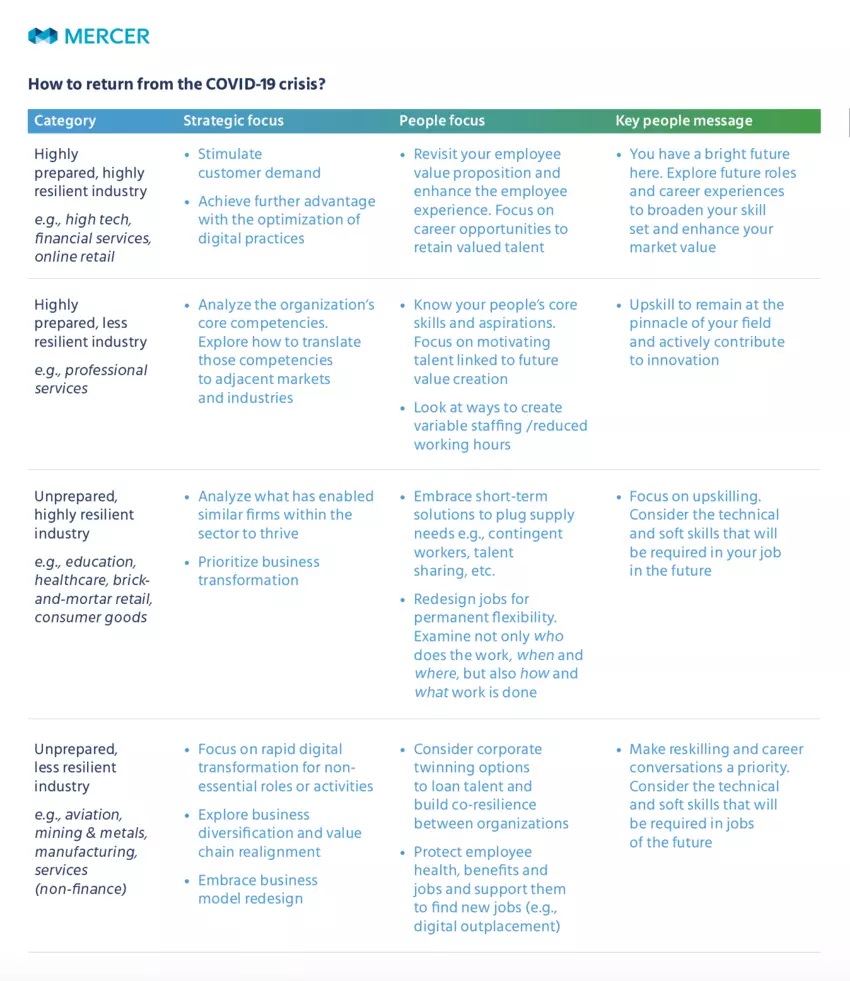As if the digital transition to the 'future of work' wasn't enough, the Corona virus pandemic has created unprecedented challenges for organisations and their workforce. COVID-19 has become a catalyst for change and companies require new ways to counter low productivity and declining revenues. Two critical traits that help people Survive are "Preparedness" and "Resilience."
What is Resilience?
For every worker with a depressive disorder, a company loses 32 productive workdays per year.
Resilience is a person’s ability to adapt well and recover quickly from stress, adversity, trauma or any kind of a tragedy that a person has experienced. If you have a resilient disposition, you are more likely to maintain poise and a healthy level of physical, mental and emotional wellness in the face of life's challenges. If you're less resilient, you're more likely to dwell on problems, become extremely sensitive to everything and therefore use unhealthy coping mechanism to handle stress, and develop anxiety and depression.
Why is there a need for resilience training in offices?
Depressed employees are also four to five times more likely to experience work-related problems than employees with chronic physical illnesses like diabetes or heart disease.
There’s a silence around this issue at many companies and otherwise. We need to stop trying to paint this picture of the perfect employee who never needs help and should be able to see it as a phase of life that any person could come across at any point in life.
While some workers suffer from depression or anxiety on an on-going basis, others have tough spells only occasionally, often triggered by major life transitions—a new job, a sick parent, a partner’s layoff, or a return to work after a maternity leave. Most employees will go about their day-to-day lives and be fine with it most of the time. But when we face unexpected pain or inconvenience in our lives, that’s when we need to have skills to cope up with it in a healthy manner. And it’s when workplaces need to make sure employees are getting the help they need.
Moving the needle on workplace wellbeing may sound simple, but it can be hard to get employees to get involved. Managers need to be deliberate and thoughtful about what they offer.
How companies can encourage employee wellness?
Companies should consider wellness programs that give workers a variety of choices, so they can pick the activities that appeal to them. It’s also crucial for managers to openly express support for wellness initiatives and encourage people to use them. For example, managers can ask their staff to block off one hour every week during office hours to work on their own wellness—whether it’s using an online intervention tool or even just getting up from their desks and taking a long walk.
Employees aren’t going to ask for time to work on their own wellness as sometimes they use work to escape from it and do nothing to make themselves better and would even say that they don’t have time for it. But that’s exactly why workplaces need to help employees take time for their wellbeing. And managers should set a good example by taking breaks themselves.
A Culture of resilience includes team members being encouraged to:
- Speak up, and ask any questions
- Openly share bad news, and report early warning signs of potential problems
- Maintain composure during ‘emergencies’ and times of heightened stress
- In case of needing further support, seek out expertise
- Keep an eye on one’s work colleagues, and be there to offer support throughout the challenge.
- Before - to minimize the impact of the stressor,
- During - to manage the heightened stress and
- After - the stressor, to ‘mend’ once the stress has passed
- Lastly, but importantly, once the challenge has passed, to encourage resilience team members to thank others for their help, and discuss any other challenges.
Just talking about the issue of mental health in the workplace and acknowledging that workers may experience low points in their lives will go a long way towards helping employees feel emotionally supported by their companies. Companies should start having meaningful conversations about this and normalizing the use of wellbeing interventions. Employees need to know that they can still get where they want to go in their careers and also take time for themselves. And they’ll be happier and healthier if they do.
Posted in : Employee Engagement
Views : 23511
Leave a Comment
Hey there !
Author Details
Related Blogs
Popular Tags
Subscribe Now

Related Blogs
More fromEmployee Engagement









